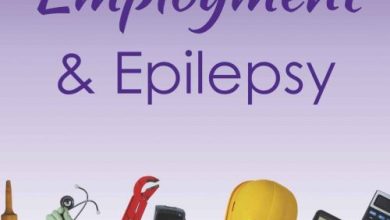
7 Common Seizure Triggers You Need to Know: A seizure is a sudden surge of electrical activity in the brain that causes changes in behavior, sensation, or movement. Seizures can be caused by a variety of factors, including head injuries, infections, and stroke. However, in some cases, seizures may be triggered by certain events or circumstances. These are known as seizure triggers. For people who experience seizures, it’s important to be aware of the triggers that can set them off. Knowing these triggers can help individuals manage their condition and reduce the risk of experiencing seizures. In this article, we’ll discuss 7 common seizure triggers and ways to avoid them.
7 Common Seizure Triggers:
Here are 7 Common Seizure Triggers:
1. Lack of Sleep:
Lack of sleep is one of the most common seizure triggers. A study published in the journal Epilepsia found that sleep deprivation can increase the likelihood of seizures in people with epilepsy. When you don’t get enough sleep, your brain doesn’t have a chance to rest and recover. This can make you more likely to have a seizure. To avoid this trigger, it’s important to get enough sleep every night. Aim for seven to eight hours of sleep per night, and try to stick to a consistent sleep schedule.
2. Brain injury:
A head injury can damage the brain in various ways, such as causing bleeding, swelling, or bruising of the brain tissue, which can disrupt normal electrical activity in the brain and lead to seizures. Depending on the severity and location of the injury, seizures may occur immediately after the injury or weeks, months, or even years later.
3. Stress:
Stress is another common seizure trigger. Stress can also trigger seizures. When you’re stressed, your body releases hormones that can affect your brain activity. Stressful events, such as exams, job interviews, or relationship problems, can trigger seizures in some people. To reduce stress, try relaxation techniques such as deep breathing, yoga, or meditation. Exercise can also be a great stress reliever.
4. Alcohol:
Alcohol can also trigger seizures. Alcohol can irritate your brain cells and make you more likely to have a seizure. If you have epilepsy, it’s important to avoid or limit your alcohol intake. The National Institute on Alcohol Abuse and Alcoholism recommends that women have no more than one drink per day, and men have no more than two drinks per day.
5. Bright lights:
Bright lights can also trigger seizures in some people. This is especially common in people with photosensitive epilepsy. To avoid this trigger, it’s important to be aware of the types of lights that can trigger seizures and to avoid them when possible. You may also want to consider wearing special glasses that can help reduce the risk of seizures.
6. Certain Medications:
Certain medications can also trigger seizures. These medications include antidepressants, antipsychotics, and stimulants. If you’re taking any of these medications, talk to your doctor about the risk of seizures.
7. Illness or Infection:
Illness or infection can also be a trigger for seizures. This is because the body is under stress, which can increase the likelihood of seizures. To reduce the risk of seizures during an illness or infection, it’s important to get plenty of rest, stay hydrated, and take any medications prescribed by your doctor.
How to identify a seizure?
If you think someone is having a seizure, it is important to identify the type of seizure so that you can provide the best possible care. There are two main types of seizures: generalized seizures and partial seizures.
- Generalized seizures affect the entire brain. They are characterized by a loss of consciousness, muscle stiffening, and shaking.
- Partial seizures affect only part of the brain. They can cause a variety of symptoms, such as:
- Confusion
- Unusual sensations
- Unusual behavior
- Loss of awareness
- Tonic-clonic seizures (also known as grand mal seizures) are a type of generalized seizure that causes a person to lose consciousness, stiffen, and shake.
- Absence seizures (also known as petit mal seizures) are a type of generalized seizure that causes a person to have a brief loss of awareness.
- Myoclonic seizures are a type of generalized seizure that causes sudden, brief muscle jerks.
- Tonic seizures are a type of generalized seizure that causes a person to stiffen.
- Clonic seizures are a type of generalized seizure that causes rhythmic muscle jerking.
What to do if someone is having a seizure?
If you see someone having a seizure, the most important thing to do is to stay calm. The following steps can help:
- Time the seizure. This will help your doctor determine the type of seizure.
- Remove any objects from around the person that could cause injury.
- Loosen any tight clothing around the person’s neck or chest.
- Turn the person on their side to help prevent choking.
- Do not put anything in the person’s mouth.
- Do not restrain the person.
- Let the seizure run its course.
- After the seizure is over, help the person to a comfortable position and stay with them until they are fully awake.
- Call 911 if the seizure lasts for more than five minutes, if the person has a second seizure without regaining consciousness, or if the person has a seizure that is different from their usual seizures.
How to prevent seizures?
If you have seizures, there are a number of things you can do to help prevent them. These include:
- Taking your medications as prescribed.
- Avoiding your triggers.
- Getting enough sleep.
- Eating a healthy diet.
- Exercising regularly.
- Managing stress.
- Quitting smoking.
- Limiting alcohol consumption.
- Getting regular medical checkups.
Conclusion
So these was 7 Common Seizure Triggers. Overall, Seizures can be frightening, but they are usually not dangerous. If you have seizures, it is important to work with your doctor to develop a treatment plan that will help you manage your condition and prevent seizures.




